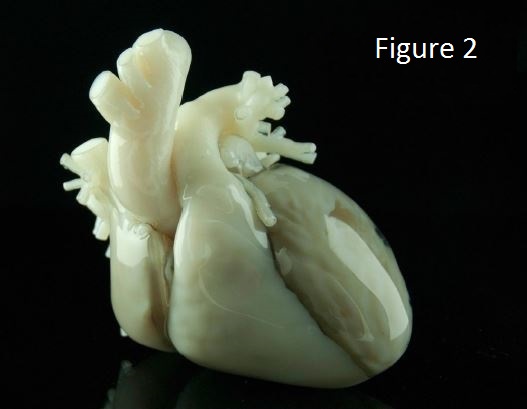3D Medical Limited (ASX: 3DM) recently announced that it has entered into a binding Heads of Agreement (HOA) to purchase 100% of shares issued in Mach7 Technologies. According to the agreement, 3D Medical will issue 460 million shares to the owners of Mach7 in exchange for the company’s assets and intellectual property. Up to 300 million performance shares will also be distributed if predetermined financial milestones are reached. The deal is valued at approximately $60 million USD.
![australia-3d-medical-limited-receives-order-25-3d-printed-jaws-successful-surgery-00002[1]](http://www.knobbemedical.com/wp-content/uploads/2015/10/australia-3d-medical-limited-receives-order-25-3d-printed-jaws-successful-surgery-0000212-300x200.jpg) 3D Medical Limited is an Australian provider of 3D printing technology and services for use in clinical medicine. The company’s “Touch 3D” service creates 3D printed models from CT or MRI scans. The models may serve as visual aids for pre-surgical planning or be directly implanted during surgery. In June 2015, the company 3D printed a titanium jaw bone that was transplanted into a Melbourne man (Figure 1, right). 3D Medical subsequently received orders for 25 additional custom implants.
3D Medical Limited is an Australian provider of 3D printing technology and services for use in clinical medicine. The company’s “Touch 3D” service creates 3D printed models from CT or MRI scans. The models may serve as visual aids for pre-surgical planning or be directly implanted during surgery. In June 2015, the company 3D printed a titanium jaw bone that was transplanted into a Melbourne man (Figure 1, right). 3D Medical subsequently received orders for 25 additional custom implants.
Mach7 Technologies is a US based provider of enterprise level medical imaging solutions. Its Mach7 system promotes sharing of data between different departments or facilities and allows the consolidation of images from disparate software platforms. The Mach7 platform is currently used in over 300 sites worldwide, including in leading academic medical centers in the United States.
The proposed merger will give 3D Medical additional exposure in US markets, and provide it with increased control over the 3D printing process from image acquisition through model and implant creation. The company hopes to raise an additional $10.9 million Australian ($7.85 million US) in working capital to support the sales and marketing activity of Mach7, to decrease Mach7’s debt, and to further develop 3D Medical’s data offerings. On October 28th, 3D medical announced that it had raised $4 million through an oversubscribed private placement.
Following the deal, the merged companies will adopt the name Mach7 Technologies and operate out of a Melbourne headquarters. The new company will offer four product lines, including Touch 3D printed models and implants, Mach7 image management solutions, the Visualize holographic projection platform (developed by EchoPixel), and the GestSure in-theater image manipulation system.
 3D printing in medicine has gained momentum in recent years and some analysts predict the global market will reach over $965 million by 2019. A variety of 3D printed structures such as teeth, skull, and pelvis have been implanted into human patients, and 3D printed heart models have been used to plan complex surgeries in patients with congenital anomalies (Figure 2, left). Some companies, like San Diego based Organovo (NYSE: ONVO), use human cells in the 3D printing process, which is called bioprinting. Organovo is working with researchers at Yale University to develop bioprinted human organs for implantation, but for the time being, Organovo prints micro-livers for use in drug development. Other companies in the medical 3D printing space include Belgium based Materialise (NASDAQ: MTLS), Michigan based EnvisionTEC, and Minnesota based Stratasys (NASDAQ: SSYS).
3D printing in medicine has gained momentum in recent years and some analysts predict the global market will reach over $965 million by 2019. A variety of 3D printed structures such as teeth, skull, and pelvis have been implanted into human patients, and 3D printed heart models have been used to plan complex surgeries in patients with congenital anomalies (Figure 2, left). Some companies, like San Diego based Organovo (NYSE: ONVO), use human cells in the 3D printing process, which is called bioprinting. Organovo is working with researchers at Yale University to develop bioprinted human organs for implantation, but for the time being, Organovo prints micro-livers for use in drug development. Other companies in the medical 3D printing space include Belgium based Materialise (NASDAQ: MTLS), Michigan based EnvisionTEC, and Minnesota based Stratasys (NASDAQ: SSYS).
Materialise, EnvisionTEC, and Stratasys own a variety of patents related to 3D printing and implants. Organovo has pending patent applications on bioprinting technology, including a bioprinter and bioengineered liver tissue. On September 1st, 2015, the United States Patent and Trademark Office (USPTO) issued a final rejection of Mach7’s patent application on a Dynamic Media Object Management System that permits incompatible medical imaging systems to communicate. On October 29th, Mach7 requested that the application be reexamined by the USPTO.